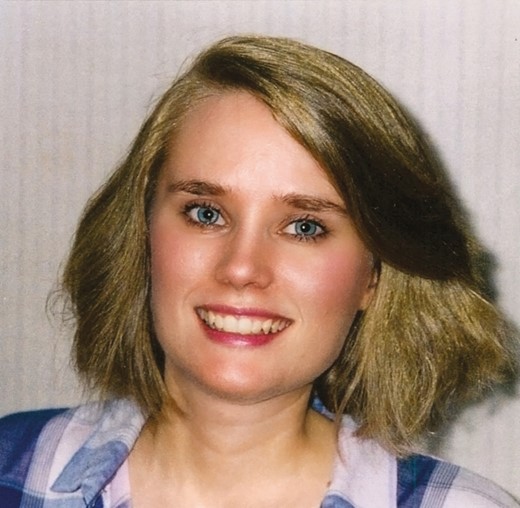-
PDF
- Split View
-
Views
-
Cite
Cite
Michael Laposata, Elizabeth (Betsy) M. Van Cott, MD, FCAP (1964-2021), American Journal of Clinical Pathology, Volume 156, Issue 6, December 2021, Pages 1162–1163, https://doi.org/10.1093/ajcp/aqab132
Close - Share Icon Share

Elizabeth M. Van Cott, MD, FCAP, a world-renowned coagulation expert and colleague to many, died on April 13, 2021. At the time of her passing, Betsy, as she was universally known, was Professor of Pathology at Harvard Medical School and Director of the Coagulation Laboratory at Massachusetts General Hospital (MGH).
Following her graduation from Smith College, Betsy briefly worked at New England BioLabs in Beverly, MA. There, she developed her skills in the cloning of restriction-modification enzyme systems, for which she was awarded patents. While at New England BioLabs, she met Neil Storey, DVM, her devoted husband of 30 years. Through his dedicated support, Neil helped make it possible for thousands of patients to benefit from Betsy’s diagnostic conclusions and test recommendations as she managed progressive physical weakness caused by muscular dystrophy.
The straight Clinical Pathology (CP) Residency Program began at MGH in the early 1990s, and Betsy was one of the first top-tier resident applicants to choose it. In hindsight, her arrival began the program’s trajectory toward national recognition of excellence. MGH’s recruitment of Betsy enabled the organization to attract many highly talented women, as well as many talented men, into the CP Residency Program. Following completion of their residencies, many of the women graduates, especially, could significantly attribute their later accomplishments to the inspiration Betsy provided to them.
Betsy’s subspecialty interest in laboratory medicine was diagnostic coagulation. As a result of that decision and my similar professional interest, I was fortunate to have a long-term professional relationship with one of the most amazing pathologists I have known, someone who had been a colleague for nearly 3 decades.
Betsy accepted a faculty appointment at MGH immediately upon completion of her residency. At that time, we were attempting to provide patient-specific, expert-driven interpretations of coagulation test results for patient-facing physicians who were uncertain of which tests to order or unsure of the clinical significance of those test results. This consultation on test selection and result interpretation is now known as the output of the diagnostic management team (DMT). The process by which the diagnostic rounds were initially performed was a result of the synergistic thinking of Betsy, Jun Teruya (Texas Children’s Hospital), and myself. The creation of this innovative role for pathologists, a modification of anatomic pathology sign-out without a microscope, especially at the beginning, garnered suspicion from other disciplines that pathology was overreaching its role. Betsy’s unwavering commitment to putting the patient first and her personal involvement in this innovative diagnostic process enabled us to overcome the political challenges that would otherwise have restricted the growth and impact of coagulation rounds. Betsy had a personal style like no other. She was gracious to everyone. When someone said the answer was, “it goes up,” and the correct answer was “it goes down,” Betsy would congratulate the person who provided the wrong answer for considering all the options thoughtfully.
In the months before her death, on a single day, she signed out 80 individual cases as the attending pathologist working with the resident on the coagulation service. The most compelling statement of the clinical benefit of the Coagulation DMT was that for decades, house staff from the different clinical services at MGH carried with them the list of test recommendations for their patients made by the attending pathologist at coagulation rounds. For the past 10 years, these recommendations had been generated predominantly by Betsy.
Betsy’s credibility was supported by a high level of scholarship. She produced more than 100 peer-reviewed publications in the field of diagnostic coagulation, along with chapters in major textbooks. In addition to signing out more cases than seems imaginable in a single day, she served on the editorial board or as associate/section editor for many journals, including International Journal of Laboratory Hematology, American Journal of Hematology, Seminars in Thrombosis and Hemostasis, American Journal of Clinical Pathology, and Archives of Pathology & Laboratory Medicine. She was also president of the North American Specialized Coagulation Laboratory Association and a founding member of the Thrombosis and Hemostasis Societies of North America.
The combination of her great accomplishments and her generosity in thoughtfully advising trainees on career development resulted in her receiving one of the highest honors at Harvard Medical School: the William Silen Lifetime Achievement in Mentoring Award. Betsy received many awards over her career, including promotion to full professor at Harvard Medical School—a noteworthy accomplishment given the amount of scholarly work required to achieve it.
Betsy was the person that all of us wanted to know and with whom we wanted to work. In the days immediately following her death, many of us consoled each other over the loss of a close friend and colleague with whom we consulted frequently. The gravity of her loss to those of us who knew her well is enormous, but she will never be lost from our memories.




